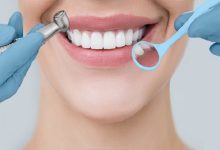
Welcome to our blog post on understanding the cost of full mouth dental implants! If you’re considering this innovative solution for restoring your smile and oral health, you’ve come to the right place. Dental health is of utmost importance, not only for maintaining a confident smile but also for overall well-being. In this article, we’ll delve into what exactly full mouth dental implants are, factors that affect their cost, what to expect during the procedure, and alternative options. So please sit back, relax, and let’s explore everything you need to know about the cost of full mouth dental implants!
The Importance of Dental Health
Maintaining good dental health is essential for a multitude of reasons. Not only does it contribute to a beautiful smile, but it also plays a significant role in overall well-being. Poor oral hygiene can lead to various dental problems, such as cavities, gum disease, and tooth loss.
Healthy teeth and gums are not just about aesthetics; they impact our ability to eat properly and speak clearly. Imagine trying to enjoy your favorite meal with missing or decayed teeth – it would certainly put a damper on the experience! Additionally, oral health issues can cause pain and discomfort that can interfere with daily activities.
Furthermore, research has shown that there is a strong connection between oral health and systemic health. Neglecting dental care may increase the risk of developing serious medical conditions like cardiovascular disease, diabetes, respiratory infections, and even pregnancy complications.
Regular brushing, flossing, and routine visits to the dentist are crucial steps in maintaining optimal dental health. By adopting good oral hygiene practices early on and addressing any concerns promptly through professional care, you can prevent many potential problems in the long run.
Remember: investing time in caring for your teeth now will save you from unnecessary pain and expenses. So prioritize your dental health today – your smile (and overall well-being) will thank you!
What are Cost of Full Mouth Dental Implants?
Full mouth dental implants, also known as full arch dental implants or implant-supported dentures, are a vital solution for individuals who have lost all of their teeth in either the upper or lower jaw. Unlike traditional dentures that sit on top of the gums and rely on adhesive to stay in place, full mouth dental implants provide a permanent and secure foundation for replacement teeth.
The procedure involves strategically placing multiple dental implants into the jawbone to support a custom-made set of artificial teeth. This treatment option offers several advantages over traditional dentures. Not only do full mouth dental implants look and feel like natural teeth, but they also function much better when it comes to chewing and speaking.
Full mouth dental implants can last a lifetime with proper care and maintenance. They are designed to be durable and stable, allowing patients to enjoy an improved quality of life with restored oral health.
It’s important to note that not everyone is a candidate for full mouth dental implants. Factors such as bone density, overall health condition, and oral hygiene habits play a role in determining whether this treatment option suits an individual.
To determine if you are eligible for full mouth dental implant treatment, it is best to consult with an experienced dentist or oral surgeon. They will assess your specific situation and recommend the most appropriate course of action based on your needs.
In conclusion,
full mouth
dental implants offer
a long-lasting solution
for those who have lost
all their teeth.
While they may require
an initial investment,
the benefits far outweigh
the cost.
Having a beautiful smile,
improved functionality,
and enhanced self-confidence
are priceless!
Factors That Affect the Cost of Full Mouth Dental Implants
When considering full mouth dental implants, it’s important to understand that the cost can vary depending on several factors. One of the main factors is the number of teeth needing replacement. If you require a full set of dental implants, including both upper and lower arches, the cost will naturally be higher than just replacing a few missing teeth.
Another factor that affects cost is the type of implant used. Different materials and brands are available, each with its price range. The quality and durability of these implants can also impact their cost.
The condition of your oral health also plays a significant role in determining the overall expense. Additional procedures may be necessary before implant placement if you have underlying dental issues such as gum disease or bone loss. These preparatory treatments can add to the total cost.
Furthermore, geographical location can influence pricing variations for dental implants. Costs differ between cities or regions due to varying overhead expenses like rent and labor costs.
It’s important not to overlook insurance coverage when assessing costs. Some insurance plans may provide partial or full coverage for dental implant procedures, while others may not.
Understanding these factors will help you better estimate and evaluate the potential cost of full mouth dental implants.
The Procedure: What to Expect
One of the most important aspects to consider when considering getting full mouth dental implants is understanding what the procedure entails and what to expect.
The first step in the process is a thorough examination and consultation with your dentist or oral surgeon. They will evaluate your oral health, take X-rays or CT scans, and discuss your treatment plan based on your needs.
Once you decide to proceed with the procedure, the next step is preparing for surgery. This may involve extracting any remaining teeth that need removal and addressing any underlying gum disease or infections.
On the day of surgery, you can expect to be under anesthesia so that you are comfortable throughout the procedure. The surgeon will carefully place titanium implant posts and artificial tooth roots into your jawbone.
After surgery, there is typically a healing period during which osseointegration occurs– when the bone fuses around the implant posts. This process usually takes several months but ensures a strong foundation for your new teeth.
Once osseointegration is complete, abutments are placed at each implant post. These abutments act as connectors between the implants and your new prosthetic teeth.
Custom-made permanent crowns or dentures are attached to these abutments using dental cement or screws. Your dentist will ensure they fit properly and provide future instructions for care and maintenance.
Understanding what happens during each full mouth dental implant treatment stage can help ease any concerns or anxieties about this procedure. It’s important to remember that every patient’s experience may vary slightly based on their case – but overall, full mouth dental implants offer a long-lasting solution for restoring both function and aesthetics to your smile!
Benefits and Risks of Full Mouth Dental Implants
Full mouth dental implants can offer a range of benefits when restoring your smile. First and foremost, they provide a permanent solution for replacing missing teeth. Unlike dentures or bridges that may need to be replaced over time, dental implants are designed to last a lifetime with proper care.
Another benefit of full mouth dental implants is the improved functionality they provide. With dental implants, you can enjoy eating all your favorite foods without worrying about discomfort or limitations. They mimic the natural structure of your teeth and allow for normal chewing and biting forces.
In addition to their functional advantages, full mouth dental implants have cosmetic benefits. They help restore your facial structure by preserving bone mass in the jawbone that would otherwise deteriorate due to tooth loss. This helps maintain a youthful appearance and prevents sagging or sunken cheeks that can occur with missing teeth.
However, it’s also important to consider the potential risks associated with full mouth dental implants. As with any surgical procedure, there is always a risk of infection or complications during healing. It’s crucial to follow post-operative care instructions provided by your dentist to minimize these risks.
Furthermore, some individuals may experience temporary discomfort or swelling after getting dental implants placed. However, this typically subsides within a few days as the body adjusts.
While there are risks involved in getting full mouth dental implants like any other surgical procedure, the benefits often outweigh them when considering their long-lasting results and the improved quality of life they offer
Alternatives to Full Mouth Dental Implants
Full mouth dental implants are often considered the gold standard when replacing missing teeth. However, they may not be the right option for everyone due to various reasons such as cost, candidacy, or personal preference. Luckily, there are alternatives available that can provide similar benefits and restore your smile.
One alternative to full mouth dental implants is partial dentures. These removable appliances consist of artificial teeth attached to a gum-colored base that fits over your existing teeth and gums. While they may not offer the same level of stability as implants, partial dentures can still improve chewing function and enhance aesthetics.
Another alternative is dental bridges. Bridges are fixed prosthetic devices of one or more artificial teeth anchored by crowns on adjacent natural teeth or dental implants. They can effectively replace several missing teeth in a row and restore both form and function.
For individuals who prefer a non-surgical approach, removable implant-supported overdentures could be an option. These involve attaching dentures to dental implants using special attachments or bars for added stability.
Mini dental implants (MDIs) are smaller versions of traditional dental implants that may suit patients with limited bone density or those seeking less invasive treatment options.
It’s important to consult an experienced dentist who will evaluate your needs and recommend the most appropriate alternative based on factors such as oral health conditions, budget constraints, and desired outcomes.
Remember that each option has its advantages and limitations. Discussing these alternatives with your dentist will help you decide which solution best suits your circumstances.
Conclusion: Is it Worth the Cost?
As we have explored in this article, full mouth dental implants can be a significant investment both financially and in terms of time. However, when considering the importance of dental health and its impact on overall well-being, many individuals find that the benefits far outweigh the costs.
Full-mouth dental implants offer a permanent solution for individuals missing multiple teeth or experiencing severe tooth decay or damage. They provide improved aesthetics, functionality, and comfort compared to traditional dentures or bridges. With proper care and maintenance, they can last a lifetime.
While the cost of full mouth dental implants may initially seem daunting, it is important to consider the long-term value they provide. By restoring your smile and oral health, you can regain confidence in your appearance and enjoy an improved quality of life.
It is worth noting that every individual’s situation is unique, so it is essential to consult with a qualified dentist or oral surgeon to determine if full mouth dental implants are right for you. They will assess your needs and discuss all available treatment options before providing a personalized recommendation.
Only you can decide if the cost of full mouth dental implants aligns with overall well-being. Poor dental health can lead to various problems, including tooth decay, gum disease, and systemic illnesses like heart disease and diabetes.
Preventing Tooth Decay
The most common dental problem is tooth decay, also known as cavities. Cavities are caused by the buildup of plaque on the teeth. Plaque is a sticky film that forms on the teeth from bacteria and food particles. When plaque is not removed by brushing and flossing, it can produce acids that erode the enamel on the teeth, leading to cavities.
To prevent cavities, practicing good oral hygiene habits such as brushing twice a day with fluoride toothpaste, flossing daily, and visiting the dentist regularly for cleanings and checkups is important. A healthy diet low in sugary and acidic foods can also help prevent tooth decay.
Preventing Gum Disease
Gum disease is an infection of the tissues surrounding the teeth. It is caused by bacteria in plaque that irritate and inflame the gums. If left untreated, gum disease can lead to bone loss and, eventually, tooth loss.
Brushing twice daily, flossing daily, and visiting the dentist regularly can help prevent gum disease. It is also important to know your budget and priorities. It may be helpful to weigh factors such as longevity, convenience, functionality, and aesthetics against the upfront expense.
Remember that investing in your oral health is an investment in yourself. By choosing full-mouth dental implants as a long-term solution for tooth loss or damage, you are investing in improving your smile and overall well-being.





